10 industry-shattering stolen exclusives
Final Fantasy XIII isn't the first major title to sleep around
As significant as the FFXIII announcement is, it's hardly the first time a major, major title or series has given up its long-held ties to a single console and experimented with other platforms. And it's not the first time such a decision has had a profound effect on the industry and its fans, either. In fact, we can think of a bunch of other examples of a "stolen" exclusive rocking the entire industry - here are the 10 best:

Stolen from: Nintendo
Stolen by: Sony
What happened? Square Enix's decision to make Final Fantasy XIII multiplatformis nowhere near as shocking as what it did to the series in 1996. Back then, publisher Square was close to Nintendo - so close, in fact, that the two companies partnered to create Super Mario RPG: Legend of the Seven Stars, still regarded as one of the best RPGs of its era. Square's flagship series, Final Fantasy, had been given its start on Nintendo's NES, and the franchise had delivered two extremely successful games (three in Japan) to the Super NES.
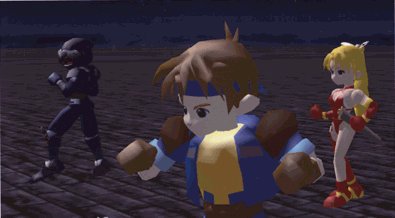
Above: Final Fantasy VII? In the minds of many Nintendo fans circa 1995, yes
Then, at the 1995 ACM SIGGRAPH convention in Los Angeles, Square unveiled its now-infamous Final Fantasy SGI Demo. Featuring three Final Fantasy VI characters and fully interactive, the demo led many fans and journalists to assume it was a demo for a Nintendo 64 Final Fantasy game, and that assumption became widely regarded as hard fact.
In actuality, as FF creator Hironobu Sakaguchi later said in an interview with PlayStation Underground, the SGI demo was "an experiment" meant to show what a 3D RPG could look like. There had never been concrete plans to create a Final Fantasy VII for the N64, Sakaguchi said, and if anything, creating the SGI Demo was part of what convinced the FF team that their vision couldn't be accomplished with Nintendo's hardware.
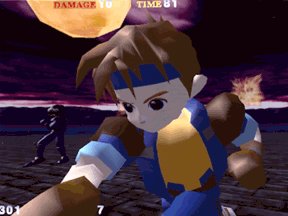
Above: Oh, what might have been
Sign up to the GamesRadar+ Newsletter
Weekly digests, tales from the communities you love, and more
Despite Sakaguchi's intentions, however, Nintendo fans were already salivating over the idea of an N64 Final Fantasy, which - given the demo and the relationship between Square and Nintendo - already seemed like a sure thing. That's why it came as a huge shock when, in January of 1996, Square announced that Final Fantasy VII would be made for Sony's then-new PlayStation.
Short-term effects: The fallout between Square and Nintendo was immediate, bitter and so severe that Nintendo effectively barred Square from making another game for its consoles until 2002. Nintendo fans weren't happy, either, and accusations flew that Sony had stolen the series with some shady backroom deal, or that Square had betrayed Nintendo outright by turning what had been an N64 juggernaut into a PlayStation exclusive.
Eventually, however, most of them got over their nerd rage, overcame their console loyalties and bought PlayStations, and Final Fantasy VII became the series' most beloved entry to date.
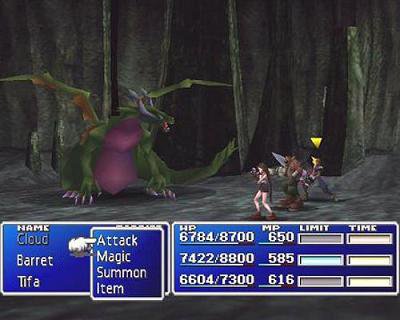
Above: According to Square, this justcouldn't be done on the N64
Long-term effects: Eight games after FF VII, the core Final Fantasy series and its spinoffs have become even more closely identified with the PlayStation brand than they had been with Nintendo. The PlayStation's popularity has helped make FF one of the most successful franchises in videogame history, which is part of why it came as such a surprise when, at E3 2008, Square announced that the formerly PS3-exclusive FF XIII would appear on Xbox 360 as well.
Strangely, the fallout hasn't been as bad this time.

Stolen from: Sony
Stolen by: Microsoft

What happened? True, Grand Theft Auto IV was never actually announced as a PlayStation 3 exclusive. In fact, the first we heard of it was during Microsoft's E3 2006 press conference, when then-Xbox chief Peter Moore rolled up his left sleeve to reveal a (presumably fake) tattoo of GTA IV's logo.
But in the minds of PlayStation fans prior to that announcement, GTA was and always would be a PlayStation series. Oh, sure, the earlier versions had all eventually crossed over to the Xbox and PC, but that was ages after they'd already made their splash on the PS2. To these fans, Moore's assertion that the game would appear on the 360 at the same time as - if not before - the PS3 was a shock. It was also the first faint hint that the PS3 might not rule this console generation like it did the previous two.
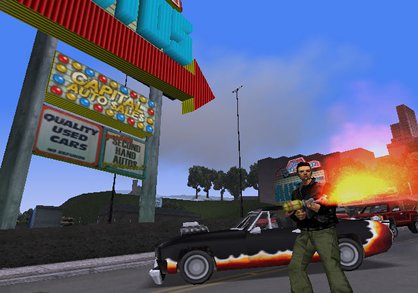
Above: Why, Rockstar? Whyyyyyy? (Answer: Money)
Of course, the real "theft" here wasn't that the game was going multiplatform - it was that the 360 version would get exclusive, downloadable content that the PS3 wouldn't. At first, many fans just sort of assumed this meant the PS3 would be getting its own exclusive content, but that hope fell away when we asked Rockstar's then-spokesman, Hosi Simon, whether PS3 owners would get anything to compensate.
"Not that I can think of," Simon said, adding, "I guess if you want the complete experience with the episodes, then yeah, you should buy the 360, I suppose."
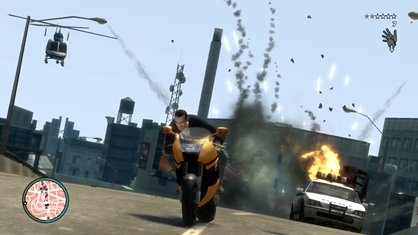
Above: An incomplete experience?
Short-term effects: Not as drastic as you might think. In spite of the promise of absolutely no add-on content to extend the game's story, the PS3 version of the game still claimed 40 percent of GTA IV's ridiculous first-week sales. Had things gone differently, though, it's extremely likely that the PS3 would be the No. 2 console in America right now. You know, after the Wii.
Long-term effects: It's too early to tell - for all we know, the DLC might suck, or the deal to keep it 360-exclusive might turn out to be time-limited, like the PS2 exclusivity deals were for GTA III, Vice City and San Andreas. Alternately, the DLC might be so awesome that it spurs 360 sales even more. We won't know for sure until 2009.

Stolen from: Nintendo
Stolen by: Sony
What happened? Third-party support for the GameCube never seemed stronger than it did on Nov. 13, 2002, when publisher Capcom announced five games exclusively for Nintendo's console. Overseen by Resident Evil creator Shinji Mikami, the five games included P.N.03, Viewtiful Joe, Killer7, Dead Phoenix and - most significantly - Resident Evil 4.
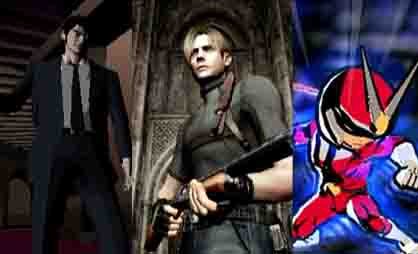
Above: Killer7, Resident Evil 4 and Viewtiful Joe - The Three That Left
Only a few months later, Capcom backpedaled a little, announcing that - of the five games - only Resident Evil 4 would be a definite Cube exclusive. In fact, the only game that stayed exclusive was P.N.03 - and that might have had something to do with its critical and commercial failure. Meanwhile, Dead Phoenix was canceled outright, Viewtiful Joe stayed exclusive for nearly a year before an expanded PS2 version hit stores and Killer7 shipped simultaneously with its PS2 counterpart.
Somehow, though, the only one that really felt like a betrayal to Nintendo fans was Resident Evil 4. When it stomped onto the Cube in January 2005, it seemed like nothing less than the system's savior. It was arguably the best-looking game of the last console generation, and it redefined both the survival horror and third-person shooter genres. Of course, by that point everyone knew it wasn't going to last - after months of insisting the game would be exclusive to the GameCube, Capcom finally admitted in October 2004, that yes, it would make its way to the PS2 eventually. And it did, nine months after hitting the Cube, complete with extra modes, weapons and costumes to make up for the wait. And noticeably inferior visuals, but nobody seemed to mind.
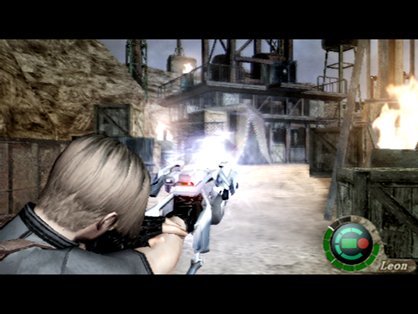
Above: This gun looks so much cooler than anything on the GameCube
Short-term effects: Resident Evil 4 proved to be the GameCube's last great third-party game. It sold extremely well for a Cube title, clearing about 1,600,000 copies, although it probably would have sold even better if Capcom hadn't announced the PS2 edition (which sold over two million copies) months before it came out. Viewtiful Joe and Killer7, meanwhile, failed to attract anything much bigger than a devoted cult audience on either platform.
Long-term effects: The Cube is dead and the PS2 is still amazingly strong for a console that's been obsolete for like three years. Coincidence?Yeah, probably.

Stolen from: Nintendo
Stolen by: Sega
What happened? These two games, both released by Konami in 1994, were never actually intended for Nintendo fans. In fact, they were specifically geared toward Sega's audience - Contra: Hard Corps had a dark, ultra-macho, strictly-for-tough-masochists image, and Bloodlines was the first US Castlevania release to feature visible blood effects. Both, however, were outcroppings of franchises that had made their names and built their audiences on Nintendo platforms, and the idea of missing out on them made Nintendo fans seethe.
Yes, it's easy to look at them as whiners now, but if you were a kid in that era, odds are you could only afford one machine or the other (much like kids in this era). Anything that showed up on a console you didn't own was effectively barred to you. Maybe you had a friend who had it, but good luck convincing him or her to give up the controller and let you play.
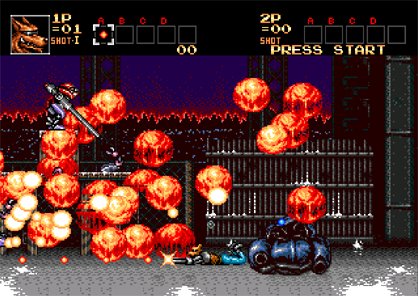
Above: Oh my god, you guys, finally!A cool werewolf is fighting aliens!
So if you didn't own a Genesis in 1994, you had to sit there and watch as your friends got to play what looked like the most awesome Contra ever. Yes, the SNES' Contra III: The Alien Wars is remembered as a better game, but Hard Corps let you play not only as one of the usual gun-toting commandos, but also as a woman, a robot or a goddamn werewolf.
Meanwhile, Bloodlines - while nowhere near as technically impressive as Super Castlevania IV on the SNES - was a dark, gritty new chapter in the series that actually tied in (however loosely) with Bram Stoker's Dracula novel. More than that, it enabled you to play not only as a whip-cracking Belmont descendant, but also as his spear-toting buddy, Eric Lecarde. Unless you owned an SNES, in which case you were shit out of luck.
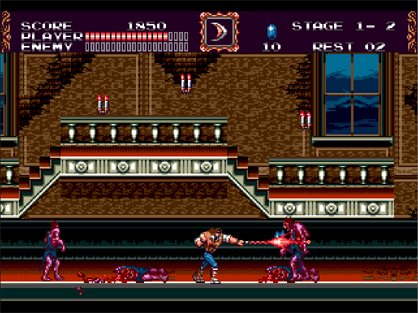
Above: Oh, man, look at that blood! TOO BAD IT'LL NEVERBE ON NINTENDO
Short-term effects: A whole lot of Nintendo fans who were pissed that their years of loyalty were being rewarded with games they couldn't play. Also, a lot of Genesis owners who got to play their very own badass installments of two beloved, formerly kid-friendly franchises.
Long-term effects: Growing up with forbidden fruit like this is part of what fueled the console-emulator boom of the late '90s, and the nostalgia-fueled retro-gaming movement that followed right behind it.

Stolen from: Sony
Stolen by: Microsoft
What happened? We didn't really understand how bitter and ridiculous the current console war had become until March 19, 2007, when Devil May Cry 4 was announced for the 360. Like GTA IV, this wasn't a case of "theft" so much as it was of the game going multi-platform - but you wouldn't know it from the way the PS3 fans howled.
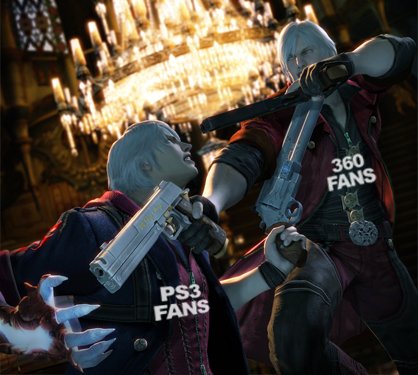
Following the announcement, some dedicated PS3 fans began a petition, threatening to boycott the game unless Capcom reversed its decision and made the game a PS3 exclusive again. Even though the PS3 version was still a go, the petition's creators complained that they felt "very left out." The petition drive was at first regarded with derision and amusement by less rabid fans, but it gained enough momentum to prompt Capcom's Christian Svensson to issue the following response to the company's forums (which has since been deleted):
"We are certainly moved that people are so passionate about our products that they would go to such extremes," Svensson wrote. "At the same time we feel that allowing more people access to our content pleases far more people than it displeases (after all, we're not denying DMC4 to anyone that was already going to get it). It really is the best decision for the company and for consumers."
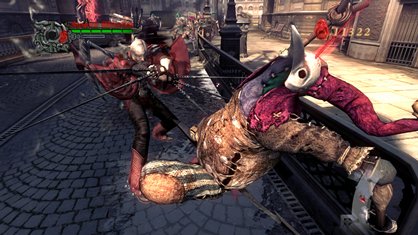
Above: Yep, still plays about the same
In the end, it seems, the petitioners didn't hold much sway over the buying audience. DMC4 was released in February to strong sales, and as of May 2008, both versions of the game have sold a combined 2.3 million copies. And despite fan complaints that the 360 edition would be inferior, both turned out to be largely identical:
Oh, except for that 22-minute installation the first time you play the PS3 version, of course.
Short-term effects: Other than demonstrating that console fanboys are more touchy than ever, Capcom's decision to make DMC4 a multiplatform release showed that - in spite of being largely ignored by gamers in Japan - the 360 is being taken seriously by Japanese developers.
Long-term effects: Since the release of Devil May Cry 4, more and more games from Japan - where the 360 is mostly ignored - have either gone multiplatform, or have been produced exclusively for the 360. Examples include Ninja Gaiden II, Lost Odyssey and - of course - Final Fantasy XIII.



